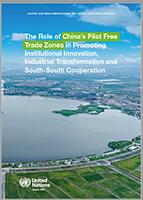
The pace and breadth of China`s economic integration, structural transformation and reduction in poverty over the last four decades is unprecedented. Among the multiple factors that have driven this achievement, China's economic policy formulation is critical to understanding its success.
China's reform and opening up began with a series of policy experiments in both the urban and rural areas, with the more successful outcomes extended and the less so revisited or abandoned altogether, an approach which has been replicated across sectors and over subsequent decades.
Experimentalism and pragmatism, two basic features of China's economic policy formulation, have been fully integrated in the country"s Pilot Free Trade Zones (FTZs) strategy, which started from Shanghai in 2013, against the background of the Global Financial Crisis. Since the first FTZ in Shanghai, the number of zones has expanded to 21.
Despite their title, the scope of China's FTZ goes far beyond trade (and investment) promotion to include a variety of policy dimensions; government functions and services, manufacturing sector upgrading, services sector opening, financial deepening, skills development and green city development. South-South Cooperation and many others have all been introduced into those 21 FTZs for "experimentation". Consequently, institutional innovation is defined as the essence of the FTZs strategy.
This publication aims to discuss the genesis, features and performance of the FTZs strategy. It also presents comparative analysis between FTZs and other special economic zones in other economies in the region. Furthermore, the volume examines the role of FTZs in promoting local SDG progress, industrial development, and South-South cooperation through three case studies.
The research has been funded by the Chinese Government at the occasion of the 10th Anniversary of the countries FTZs strategy.


